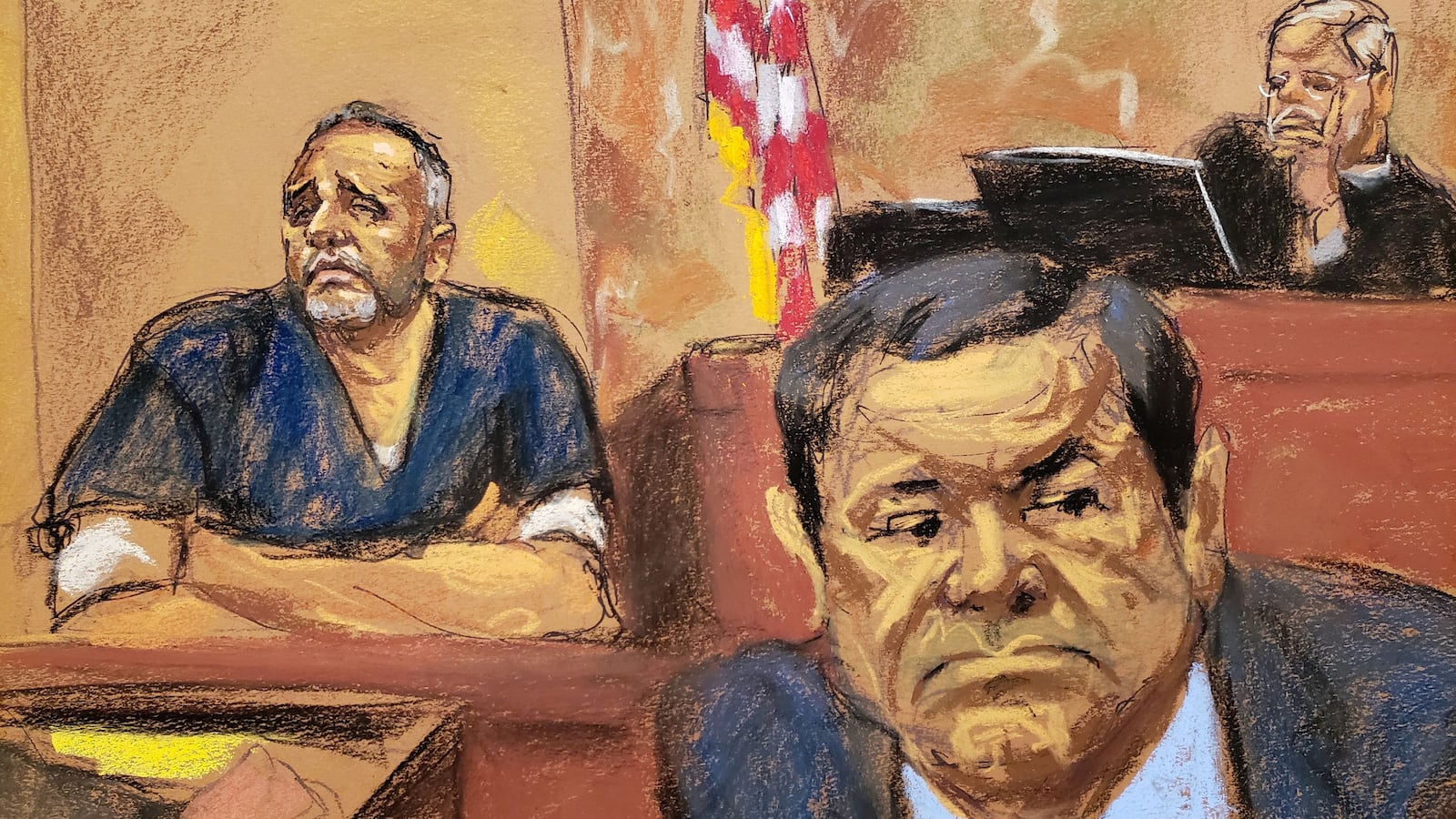What started off in federal court as a gripping description of Joaquin “El Chapo” Guzman’s capture in early 2014 spiraled into combative comedy, with the reputed drug lord’s lawyer even suggesting his client had endured police brutality.
DEA agent Victor Vazquez recounted in Brooklyn Federal Court on Thursday how he and a select group of Mexican marines hunted down Guzman some five years ago.
Guzman is now on trial facing 17 counts for allegedly trafficking almost a half-million pounds of cocaine into the U.S. over three decades with the Sinaloa cartel.
In February 2014, Vazquez and marines received information that a close Guzman associate in Culiacan named La Nariz—“The Nose” in English—would likely know his whereabouts. They made for La Nariz’s house but encountered a large block party preventing access to the street, Vazquez said.
He and the marines went into the party and lined up the approximately 17 men, asking to see their phones. With the dozen or so women, “they were obviously complaining,” Vazquez said. “We ignored them and let them do what they wanted to do.”
Neither Nariz nor Guzman were anywhere to be found.
When a woman jumped off her chair and shouted, “I’m going to go check on the baby,” and went into a neighboring house, Vazquez knew something was up.
In that home, the woman was holding a baby with her arms tightly against her side. When authorities took the baby away, a cell phone dropped out of her armpit. They found Nariz in the bedroom.
Nariz helped agents conduct searches of five locations, from which Guzman was believed to escape through tunnels. Vazquez’s team then got intel that Guzman was at the Hotel Miramar, in Mazatlan. Fearing interference from corrupt cops, they stopped by a big-box store to buy board shorts and blend in with locals.
Two local police cars were posted outside the hotel, but they agreed to move, allowing Vazquez’s team access. Vazquez said the some two dozen marines in his group swept the hotel, a “known cartel stronghold.”
He heard shouts of “Siete! Siete! Siete!”—“Seven! Seven! Seven!” — their code to gather. “I knew they had got him,” he said.
Vazquez ran to the parking garage.
“The marines had Guzman-Loera on his knees,” he recalled.
They asked Vazquez to confirm that the man was, in fact, their target.
“I walked toward him,” Vazquez testified on direct examination. “I even kind of froze myself and said, ‘Holy, it is him!”
“I said, ‘Eres tu,’” Vazquez said. “It’s you.”
Guzman’s wife, Emma Coronel, was also present during the Feb. 22 raid, as were their two baby girls, Vazquez said.
Guzman escaped from prison the following year, but was recaptured in early 2016.
When one of Guzman’s lawyers, Eduardo Balarezo, cross-examined Vazquez, he tried to make the lawman look over-aggressive.
Of the block party raid, Balarezo asked, “So you lined them up against the wall and questioning them .. .hassled them?”
The marines and an “American?” Balarezo pressed, referring to Vazquez.
“Mexican-American,” Vazquez answered, correcting Balarezo’s suggestion.
Balarezo pushed Vazquez on why he was worried about the two cop cars outside Hotel Miramar:
“Do you know whether they were eating a donut, or something?”
He also tried downplaying Guzman’s rep as an allegedly flighty drug lord, asking, “Was there like a sheet tied in knots out the window” during the raid?
Two photos were then displayed of Guzman—one of him right after the arrest and another, unrelated photo. There is a mark on Guzman’s face after the arrest that isn’t present in the other photo, Balarezo noted.
“The marines kind of roughed him up a little bit.” Balarezo said, prompting an objection.
“Do you know how he got that bruise?” he asked, pushing prosecutors to object once again.
Guzman is no stranger to brutality, accused of ordering more than 30 murders.







